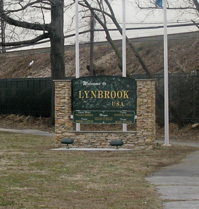Lynbrook officials working on tentative budget
Average homeowner could pay an extra $195 in taxes
Lynbrook's 2010-11 tentative budget contains a 2.1 percent increase from this year's spending plan and nearly a 5.9 percent tax rate increase. Though Lynbrook officials say that the tax rate could decrease before the budget is adopted on May 1, as of now, the average Lynbrook homeowner would pay an extra $195 in village taxes.
The tax rate increase for this year was 4.9 percent.
According to Village Administrator John Giordano, the main spending increase in the 2010-11 budget were for state-mandated pension premiums. He explained that the unstable stock market contributed to increased premiums, but noted that if the village were allowed to amortize those payments, it could cut its tax rate increase by two percentage points. He added that village officials won't know if that if that can happen until the state budget is adopted.
Another spending increase in the budget was for contractual raises to the village police department's salaries and fringe benefits, which makes up one-third of the village budget. The increase was nearly $400,000, Giordano said. "Crime and response times are down in the village," he said. "...and with our new camera program, we are expanding protection."
Giordano added that the police contract was finalized two years ago before the downturn in the economy.
Village officials said they found savings in other areas to offset some expenditure increases. Three village hall positions were filled with lower-salaried employees, Giordano said, while another position was left vacant. Mayor Brian Curran said the largest savings came via the new garbage contract with Covanta — a Westbury waste-to-energy plant — which saved Lynbrook $100,000. "It's the single biggest savings we've seen this year," Curran said.
Village revenue increased by about $200,000 through special franchise taxes — money collected by the village from the cable, electric and phone companies — and 75 percent of the village's work force did not take a salary increase for next year. "A lot of credit has to go to the contractuals and non-contractuals by recognizing the time we're in and working with us," Curran said.

 60.0°,
Overcast
60.0°,
Overcast 




